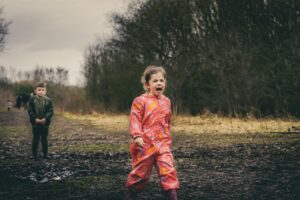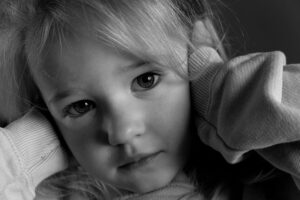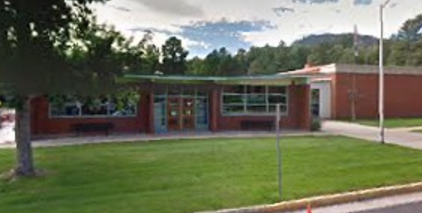
The Dark Side of the Holidays
The nights are starting earlier, Thanksgiving is done, and Christmas lights are sparkling all over Colorado Springs. The Holiday season is upon us once again, and with COVID-19 mostly behind us, we’re able to have those big family gatherings and togetherness that we missed in 2020 and 2021.
As wonderful as the holidays can be, and as precious as our children can be during these bright days, there’s a dark side to it all. With an easy wrong turn, children can go from adorable cherubs to angry, frustrated versions of themselves–all in the blink of an eye!
Santa: Rat Fink
He sees you when you’re sleeping
He knows when your awake
He knows when you’ve been bad or good
So be good for goodness sake
– Santa Claus is Coming to Town,
- Fred Coots and Haven Gillespie
The holiday tantrums seem to be related to the idea of gifts and Santa Claus. Kids struggle with understanding the ethos of gift-giving unless they have been walked carefully through an understanding. It’s important to know that Santa is a terrible problem for most children. He’s an omnipresent, omniscient character who can decide how their holidays will resolve.
Parents have long used Santa Claus as a means of demanding better behavior from children. Does it really work the way it should, though? Do kids have the capacity to alter their behavior in that way? Can they retain those rules so strongly that they adopt better behavior?
The answer is: not very well. Kids are still forming their characters and have many lessons to learn before they can effectively deal with an offered ‘wish’ being threatened by their own natural behavior. The threat of displeasing Santa and not receiving a nice gift has many negative effects on kids. The worst being that it makes love and appreciation transactional if it works at all.
The threat of Santa punishing them with coal (or just not bringing the gift they most want) makes children aware of a consequence for naughtiness at too early an age, and teaches them that they will be rewarded if they comply and punished if they fail to be ‘good’. A pre-school age child who enters a conflict with another child isn’t thinking of Santa. They’re thinking of how to navigate, survive, and thrive in a social situation with limited supervision from adults. But once a rule is broken, then, they will think of Santa– and contemplate the loss of a reward they were hoping for.
If the threat against their wish is revealed to be just a threat, it can be harmful to their character, leading to entitlement and a lack of respect for the behavior that is expected from them. Empty threats just don’t work.
We can’t blame Santa alone
There are other factors leading to highly emotional, volatile tantrums during the holiday season:
Sugar Highs
Most Holiday celebrations include lots of sugary treats, and the peaks of a sugar high eventually lead to the valley of a sugar crash. Be mindful of what your child is eating and keep sugar treats to designated times, for everyone.
Disrupted Schedules and Routines
The more typical the routines over the holidays, the better with the exception of slowing down and dropping a few typical activities in favor of baking and cooking together, reading stories and snuggling and playing games. Late nights and too many parties/activities can really throw a preschooler out of whack.
Social Tensions
Kids are receptive to family strife, from parents with underlying anger to relatives who resent being in close quarters with the extended family. The emotional pressure kids can build on these kinds of factors could lead to a terrible tantrum.
So what can we do?
The most important thing we can do for our kids is to let go of the expectation of perfect behavior. Walk your child through some of the likely pressure points they will feel and help them navigate their darker feelings. Be mindful, and watch their sugar intake, and the influence the extended family has on their wellbeing. Be patient, and don’t hold Jolly St. Nick over their heads, for goodness sake.
If you’d like to discuss a place at Creekside Kids for your kids, we’d like to invite you to click this embedded link to schedule an appointment. Let’s get to know each other! Like us on Facebook to follow our stories for news and updates. We’re located at 1201 W Cheyenne Road, Colorado Springs, CO 80906, and we can be reached at (719) 635-9111. Our new hours of operation are 6:45 am until 5:45 pm, Monday through Friday.




 1201 W Cheyenne Rd
1201 W Cheyenne Rd